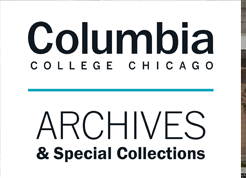Document Type
Article
Loading...
Publication Date
Spring 2009
Keywords
Chicago, Mozambique, South Africa, Tanzania, World Council of Churches, FRELIMO, Chicago Committee for Liberation of Angola, Mozambique, and Guinea-Bissau (CCLAMG), Mozambique Liberation Front
Disciplines
African American Studies | African History | African Languages and Societies | American Politics | Civic and Community Engagement | Cultural History | History | Inequality and Stratification | International Relations | Other Political Science | Place and Environment | Political History | Political Science | Political Theory | Race and Ethnicity | Race, Ethnicity and Post-Colonial Studies | Work, Economy and Organizations
Abstract
Length: 350 minutes
Oral history interview of Rozell 'Prexy' Nesbitt by Erin McCarthy, PhD in 2009. Transcript created by Katherine Philipson, summer 2017
Prexy Nesbitt recounts his childhood in the Lawndale neighborhood of Chicago, Illinois, living in the family-owned apartment building with eleven flats and multi-racial family and friends. He speaks about his education at Francis Parker school and his first trip to African while a student at Antioch in Dar es Salaam, Tanzania, where he began his anti-apartheid work in the early 1960s,He recalls his years of activism with governments, organizations, and political groups, including the the six liberation movements involved in Southern Africa: African National Congress (ANC), Mozambique Liberation Front (FRELIMO), Popular Movement for the Liberation of Angola (MPLA),Zimbabwe African People's Union (ZAPU), and the Zimbabwe African National Union (ZANU), the Southwest African People's Organization (SWAPO), the African Party for the Independence of Guinea and Cape Verde (PAIGC). He also talks about his involvement in the Chicago Committee for the Liberation of Angola, Mozambique, and Guinea Bissau American Committee on Africa, the Institute for Policy Studies, the African National Congress, Labor Against Apartheid, and others. He recalls the death of Chicago Mayor Harold Washington and his work with local groups such as Chicago Coalition for Illinois Divestment from South Africa (CIDSA). He speaks about the release of Nelson Mandela from prison in South Africa and the death of Chicago Mayor Harold Washington. He discusses his global travels on behalf of liberation and shares thoughts about the future.
Recommended Citation
McCarthy, Erin. "Interview with Prexy Nesbitt" (Spring 2009). Oral Histories, Chicago Anti-Apartheid Collection, College Archives & Special Collections, Columbia College Chicago. http://digitalcommons.colum.edu/cadc_caam_oralhistories/2
Creative Commons License

This work is licensed under a Creative Commons Attribution-NonCommercial-No Derivative Works 4.0 International License.
Additional Files
CAAM_OralHistories_Spring09_nesbit_02.mp3 (153210 kB)Interview with Prexy Nesbitt.pdf (525 kB)
Included in
African American Studies Commons, African History Commons, African Languages and Societies Commons, American Politics Commons, Civic and Community Engagement Commons, Cultural History Commons, Inequality and Stratification Commons, International Relations Commons, Other Political Science Commons, Place and Environment Commons, Political History Commons, Political Theory Commons, Race and Ethnicity Commons, Work, Economy and Organizations Commons



Biography and Comments
Born in Chicago, Illinois, Prexy Nesbitt was educated at Antioch College, Yellow Springs, Ohio, with a degree in Political Science and a minor in Literature, Nineteenth Century Russian Literature. He went on to attend the University of Dar Es Salaam, Tanzania; Northwestern University, Illinois; and Columbia University, New York.
An activist and an educator, he remains active in labor, human rights, and equality movements, working for the American Committee on Africa, director of the Africa Project at the Institute of Policy Studies, Washington, D.C, and program director and research secretary at the World Council of Churches, Geneva, Switzerland.
In 1986, Nesbitt returned to Chicago. He worked as a labor organizer and as special aide to then Chicago mayor Harold Washington, and in 1987, the Mozambique government appointed him consultant to represent the country and its interests in the United States, Canada, and Europe. In 1993, he served as the senior program officer with the Program on Peace and International Cooperation with the MacArthur Foundation, a position he held until 1996. He taught at Columbia College Chicago for 33 years and is currently the Presidential Fellow in Peace Studies at the Chapman University, California.
The interviewer, the faculty member for the Spring 2010 class, Oral History: The Art of the Interview, conducted this oral history herself due to its complexity and length. This interview supports the scope and content of the Chicago Anti-Apartheid Movement Collection at the College Archives & Special Collections department of Columbia College Chicago. Contact archives@colum.edu for more information and to view the collection.